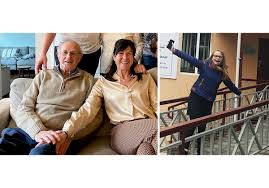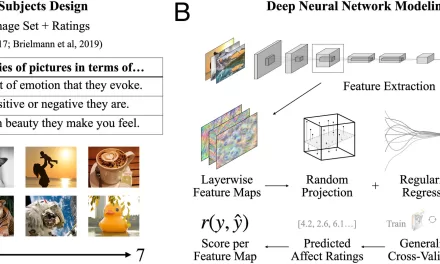“My father felt powerless, like life was flowing out of him,” explains his daughter, Lies. At the age of 84, after Pim van Vliet underwent a surgery, he began suffering from a chronic urinary tract infection caused by a multi-drug resistant bacterium, Klebsiella pneumoniae. The persistent infection resulted in numerous hospital admissions over several months and wasn’t responding to intravenous (IV) antibiotics. Then, from his hospital bed in the Kingdom of the Netherlands, Pim watched a television programme about bacteriophages treatment at the Eliava Institute in Tbilisi, Georgia.
Bacteriophages, also known as phages, are viruses that selectively target and kill bacteria. These natural biological entities are ubiquitous in the environment and can destroy bacteria that are resistant to medicines such as antibiotics. Phages offer a promising alternative or adjunct to antibiotics.
“My father, being close to death, asked me to reach out to the Eliava Institute for help as a last resort,” Lies continues. His urine samples were requested and sent to clinical microbiologists at Eliava who were able to isolate the bacteria and develop a custom phage therapy regimen.
Pim began phage therapy in May 2017 and within days there was a noticeable improvement in his condition. After little more than a month of phage therapy, administered at home by family members with support from a home care nurse, Pim made a full recovery without any reported side-effects. Urologists confirmed that the drug-resistant bacteria were gone. Pim has not experienced a urinary tract infection since phage therapy and recently celebrated his 91st birthday in good health with his family.
Using bacteriophages within a One Health approach
“My father miraculously bounced back and with a powerful story to tell,” says Lies. “I learned a lot of suffering can be avoided with the use of bacteriophages, especially if used at an early stage for chronic infections. If only health workers can be informed and educated about phages, they can embrace the knowledge and start working with this therapy – however, we need legislation to support its widespread use,” she adds.
To this end, WHO/Europe is leading a dialogue, in collaboration with the Global Antimicrobial Resistance Research and Development (R&D) Hub, to investigate practical applications and evidence supporting the use of phages. This initiative aims to strengthen the scientific foundation for the potential broader adoption of phages in controlling antimicrobial resistance (AMR). Addressing AMR requires a multifaceted approach that considers human, animal and environmental health, known as the One Health approach. However, the potential broader adoption of phage therapy requires robust evidence to support its efficacy, safety and feasibility across One Health sectors.
Without effective interventions, AMR has the potential to reverse decades of medical progress, leading to increased morbidity, mortality, and health-care costs. AMR occurs when microorganisms, such as bacteria, viruses, parasites or fungi, become resistant to antimicrobial treatment to which they were previously susceptible. The rise of resistant pathogens undermines the effectiveness of antimicrobial medicines, rendering once-treatable infections in humans, animals and plants increasingly difficult and, in some cases, impossible to manage.
The benefits of personalized care
Lydia Roelof’s daughter, Marit, suffered from chronic urethral infections from the age of 3 to 11. Marit was on antibiotic therapy for several months at a time, but nothing seemed to help. Hospital visits were endless, interrupting school and hampering Marit’s quality of life. “At first, the infection improved with prescribed antibiotics; however, it always came back and seemed more severe each time,” explains Lydia. Eventually Marit’s kidney became infected and she was hospitalized with IV antibiotics.
Similar to Pim, Lydia discovered the Eliava Institute through a television programme in the Netherlands. Around the world there are a limited number of institutes and clinics working on the application of bacteriophages in human health.
“Our clinic has treated over 8400 patients from across the world with custom phage therapy since 2018,” says Dr Mariam Dadiani, physician of internal medicine at the Eliava Phage Therapy Centre in Georgia. “We use a patient-centred approach through the provision of personalized care. It is very important to increase the awareness about the role of bacteriophages in the treatment of multi-drug-resistant chronic infections. Behind our individual success cases lies the evidence to support the development of phage therapy for widespread use in human health,” she notes.
Marit and her mother travelled to the Eliava Phage Therapy Centre in 2018 where Marit was diagnosed with a multi-drug-resistant E. coli bacteria. She began a 14-day treatment course of phages while staying at the clinic and, upon returning home, she continued phage treatment for another 6 months. She started to feel a lot better, with less pain and more energy each day, and eventually she was able to return to school without any interruptions. When doctors tested her again, the bacteria were gone and the infection has not returned since.
Today Marit is an 18-year-old, healthy woman who is studying to work with children and enjoys playing sports like Korfball. Success stories from people like Pim and Marit reinforce the value of person-centred care and communicate that phage therapy holds promise in helping to address the AMR crisis.
WHO/Europe commits to action on AMR
The vision for AMR in the WHO European Region is that, by 2030, people and animals will be safer from hard-to-treat, resistant infections in healthier environments. To achieve this, WHO/Europe’s 53 Member States have endorsed the Roadmap on AMR (2023–2030), which supports countries in the Region to identify, prioritize and implement high-impact interventions that will mitigate the impact of AMR. WHO/Europe is committed to tackling the global health challenge of AMR, including through innovation and research, which have been identified as enablers for the action areas in the Roadmap. Developing and expanding the evidence base for phage therapy for the potential broader use of bacteriophages aligns with this commitment.
The Roadmap embraces a people-centred approach, as it seeks to engage with and empower people as partners in addressing AMR. Personal stories from survivors of AMR raise awareness about what it means to suffer from chronic untreatable infections and brings the impact of AMR on people’s lives closer to home. Such stories represent the integral relationship between people, professionals and the health and care system, and highlight the benefits of personalized care.
WHO/Europe, in partnership with the Global AMR R&D Hub, is bringing experts together to help determine the regulatory and legislative requirements for the use of bacteriophages from a One Health perspective. A series of webinars was conducted to discuss the opportunities and challenges facing the application of bacteriophages. The objectives are to explore the current state of knowledge and gaps and identify strategies for building the evidence to support the broader use of phages as a tool to help tackle AMR.












